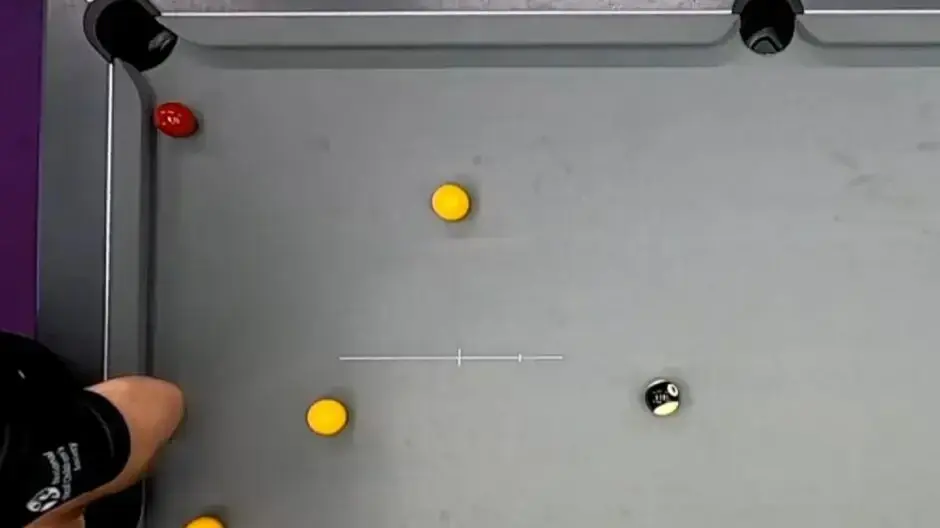No secrets and revelations, but with magic. "Yehuda Poliker, the child in me" (Photo: Itzik Portal, courtesy of Docaviv Festival)
Yehuda Poliker, one of the greatest Israeli musicians of all time and the youngest son of his parents, was not even supposed to be born. His mother had an unplanned pregnancy and was about to terminate it when she found out. But one nightdream of his father, Jaco Poliker, changed the history of Israeli culture, no less. The late grandmother Perla came to him and told him, "Jacko, I want to come." In the morning he asked his wife if she had become pregnant, and when she confirmed - he understood exactly the meaning of the dream. "This is my mother and they will call her Perla," he insisted. In the end, Ben came out. "As fate would have it, I was born Yudko," says the beloved singer and guitarist in the new documentary about his life, "Yehuda Poliker, the Child in Me" (later Bis Docu), which is currently screening as part of the 25th Docaviv Festival.
It's a charming little story, seemingly an unimportant anecdote, but the return to it illustrates the spirit of the film, which is called "The Child in Me" not only after his successful song, but because Poliker returns to the shadows of his childhood and family again and again throughout his career, and even more so over the past decade, including in his later albums and in a fascinating autobiography that he published that focuses on this period alone.
The film was created by veteran producer Eti Ante Segev, who signed on to direct alongside Yaniv Amoudai. Ante Segev has also been a friend of Poliker's for decades, and she interviews him about his life and work. Through the conversations, archival footage and rare materials, all the topics that could have been expected emerge: childhood in the shadow of his parents who survived the Holocaust, the beginning of his journey with gasoline, his masterpieces from the 80s, his sexual identity, the relationship with his creative partner Yaakov Gilad, the tragic death of his two nephews, and also a little of his private life. Interestingly, this is the second documentary this year that returns in one form or another to the seminal album "Ashes and Dust", after "Where Are You Going", in which Yaakov Gilad and his mother Halina Birnbaum embark on a joint trip to Poland.
It's a well-made docu-music, no less but nothing more, that effectively packs the career of one of the giants working here. For those who have followed Poliker's career, the interviews he has given over the years or his book, the film does not renew much, has no hidden secrets and no exciting revelations. And yet there is something captivating about him: the protagonist himself, who apparently speaks here with joy and openness as he probably never did. Poliker radiates satisfaction, self-acceptance and acceptance of the stories and demons he carried on his back all his life. From the height of his 70s and a little, he is well aware of mistakes and achievements, and talks about them directly.
From time to time, the film shows an old documentation of Poliker, while at the same time the musician watches with the guitar in his hand, and sometimes he also joins in playing the documentation. It's a stroke of brilliance, because when Poliker plays, his emotion flows so naturally and simply, which becomes a sharp illustration of how he won the hearts of so many Israelis. Another such moment is when he tells how he heard a boy play "The House of the Rising Sun" at the military boarding school and his life changed forever.
"The child in me still gives me songs," he says at the film's opening. Only it will never stop.
More in Walla!
Rabbi Ovadia called him "Satan." Yossi Sarid just wanted his mother to be proud
See full article >
Wish it was even longer. "Inbal Perlmutter – If It's Over" (Photo: Ronen Lalena, courtesy of Docaviv Festival)
Apart from Poliker, this year's festival included several other films about musicians. One would expect the films about Poliker and Zvika Pick to occupy the center of attention, but the show was stolen by "Inbal Perlmutter - If It's Over" created together by Sharon Luzon and Abigail Sperber (later Bis Docu), which won the Best Film award in the Israeli competition yesterday, giving it the right to automatically register for nomination in the Oscar competition for Best Documentary somewhere next year.
Like Poliker, Perlmutter is not a forgotten figure. In her life, and perhaps even more so after her death in a car accident at the age of 26 a little more than 25 years ago, she is one of the most iconic figures in the history of Israeli rock, a brilliant, original and inspiring creator that hundreds of journalistic articles have tried to crack over the years, including some by this writer. But Lauzon and Sperber came up with spectacular material that no one had ever revealed: Perlmutter's private, honest and moving diaries, in which she recounts candidly and in beautiful language the hidden feelings of her heart, her loves, her mental struggles, and, painfully, her unsuccessful attempt to battle drug addiction.
Through the diaries, the film focuses on the five years between the formation of the band of witches, in 1992, and her death on New Year's Eve 5778. Apart from the diaries, which are read in the voice of Netta Polturk, which is strikingly similar to that of the singer, he uses interviews with her creative partners, family and close friends, but their faces are rarely visible on screen. Instead, excluding archival footage, the film mostly passes through various images and objects, journal lists, photos, calendars and so on. The choice to abandon the talking heads enhances the way the main story is told, i.e. in the first person, and in general the results are beautiful and original. More importantly, even for those who consider themselves devout fans, the film renews a lot, and I wish it was twice as long and more material from the diaries would have been revealed.
The film encompasses Perlmutter's too-short career, presenting a chronicle of a long and bitter struggle with her own demons. It is not only a sinking or whirlwind of self-destruction, but also explicit attempts to fight, to recover, to come to light and to be happy. As exciting as the glimpse into the capillaries of her soul is, and as central to the plot as drug addiction is, it must be said that the emphasis that the filmmakers place on this subject leaves too little room for dealing with Perlmutter's and the witches' work—which is formative and fascinating in itself, and that, after all, is the reason we came together. Since she is one of the greatest writers and musicians active in Israel in the 90s, there is so much more to be said about the few albums she managed to create. Another missing part of the film – typical of written and photographed biographies of Israeli musicians – is the aftermath: what happened after death, the legacy, the tremendous influence, the musicians who rose in its wake and the young audience that discovers it, and in general what Perlmutter tells us today. These will wait for sequels, which will surely be done.
More in Walla!
Off, down and ridiculous: Johnny Depp's puzzling comeback kicks off Cannes Film Festival
See full article >
Authentic and communicative. "1948 - Remember and Forget" (Photo: Archival photo, courtesy of Docaviv Festival)
Diaries are also at the center of another film that did not come out empty-handed from the festival: "1948 - To Remember and Forget" by Neta Shoshani, which won itself the screenplay award. This is a wide-ranging epic, about two and a half hours long, which mainly describes through the words of the contemporaries the horrors of the War of Independence and the Nakba, and, as its name suggests, their forgetfulness and forgetfulness, and no less sad: the justifications given to them. The film, which will certainly like its predecessors provoke the constant and expected political storm instead of the necessary soul-searching, will be broadcast later this year on Kan 11.
Many films have been made in recent years about the dark sides of that formative war, but "1948 - Remember and Forget" is probably the most ambitious of them all. It overlooks almost the entire War of Independence – about a year and a half of fighting – but is far from an encyclopedic summary of events. It does not focus on battles, conquests and major moves, but on the human experience in wartime, as expressed in letters, diaries and memoirs of civilians, fighters and leaders, Jews and Palestinians, and even that of the mediator, Count Bernadotte of Sweden, who was murdered by Lehi fighters.
In a fascinating scene filmed in the present, an Israeli military unit is seen searching for the remains of fallen soldiers on Palestinian land, and while the Israeli fighters experience the operation as an almost sacred and certainly moral mission, with a fair amount of justice, the Palestinian residents of the area are outraged by what they see as the continued dispossession and injustice against them that has continued since 1948. These are just a few minutes that alone tell everything you need to know about the traumas that have accompanied both peoples ever since, and the inability to contain each other's tragedy.
The diaries tell a similar story. "Death is irreparable, it is an insult to man. All in all, they are all animals. Who is righteous, who is evil, everyone thinks of himself," writes Eldad Penn, a Palmach fighter who fell in the war after a deadly attack on Ben Yehuda Street in Jerusalem. Such quotes form the main axis of the story and are read by actors against the background of a rather amazing database of photographs from the period and a few reconstructions and infographics, as a kind of very impressive collage but also terrible and heartbreaking. Shoshani is particularly interested in places where the rules of war are broken and innocents, Arabs and Jews, pay a cruel price: massacre, terror attack, murder of prisoners, expulsion, independent and institutional looting. Thus, through the same diaries, the events of Deir Yassin and the Hadassah convoy stand side by side in the film, as shocking evidence of unrestrained violence.
While national narratives prefer to suppress such incidents in the overall picture, contemporaries who witnessed them relate to them directly, as they are, in the first person, and are forced to confront what they have seen, as well as the justifications for doing so. "I don't think I'll ever be able to free my mind from the sights that were discovered in Tiberias," writes Nativa Ben Yehuda in April 1948, after the conquest of the city. "Until now, we haven't even bothered to think about the enemy in terms of poor people. Until now, they deserved everything." With all the limitations of memoirs, notes and testimonies as solid historical sources, the choice to tell the stories in this way gives the film an authentic and communicative touch, perhaps much more than if a yellowing document had presented the same claims, without compunction.
"Oblivion," says a famous quote by the French thinker Ernest Renan, "is a fundamental factor in the creation of a nation... The essence of the nation is that all the individuals in it share many things in common, just as they forget quite a bit together." This is what the second part of the film deals with, which is mixed with the first: the attempts to obscure the crimes and the refusal to open the archives and reveal documents – including an official Israeli government investigation report examining massacres committed during the war – on various to puzzling grounds. Indeed, these are events about which the testimonies are difficult and shocking, but as the film rightly claims, at the end of 75 years we are supposed to be mature enough to recognize what has been done, and to face the past even if it is unpleasant.
However, these later parts, as outrageous and irritating as they are, also weigh on the film and its convincing first part, and the time jumps Between 1948 and today, the story is interrupted and taken out of balance and rhythm. It seems that this story belongs to another film, or at least to another internal division of the story into chapters. Another drawback of the film concerns the many constituent characters of the collage, about whom we are provided with only minimal information, although some of them accompany the story again and again and again. Either way, "1948 - Remembering and Forgetting" is a must for any lover of Israeli history, even if it too probably won't change the picture of memory.
More in Walla!
"Actresses have to deal a lot with looks, Instagram and filters. The feeling is that they are not accessible to viewers."
See full article >
A story that has been pushed out of consciousness. "The Orchestra" (Photo: Diego, courtesy of Docaviv Festival)
Another film at the festival that returns to the open wounds of the State of Israel is "The Orchestra" by Ofer Pinchasov (later Bis Docu), winner of the soundtrack award, dedicated to the amazing and not really known story of the Kol Israel station in Arabic, and includes tales of espionage, propaganda, culture and art, alongside institutional discrimination and exploitation of the station's employees, Jews from Islamic countries alongside Muslim Arabs living in Israel. The title of the film is not aimed (only) at the magnificent radio orchestra conducted by Zuzu Musa, but at the nickname of the station in the Arab press: the propaganda orchestra of the Israeli broadcasting house.
Pinchasov's film, creator of "Ahuva Ozeri - Bells Ringing", positions the station as a symbol of the tragic reality of these new immigrants, some of whom came from a life of success, wealth, honor and appreciation to a reality of contempt and disregard, in which in order to integrate and earn a living they had to obscure their identity or, in the case of the propaganda station, use it as a weapon against their homeland. These include great musicians such as the Al Kuwaiti brothers who played for the station's orchestra to attract listeners from other countries, and popular broadcasters throughout the Arab world such as Daoud Al Natour (Eliyahu Nawi), Bashir Amin (Shaul Menashe) and Ibn Al Rafiddin (Salman Deby), through whom the Israelis conveyed various messages to these countries, some exhortations, some outright lies. According to the film, in other and really exciting cases, the choice of songs at the station was used to operate spies - the kind of thing seen in old spy movies, how who would have thought they took place from the heart of a radio station in Jerusalem.
The film emphasizes that, tragically, the station's stated goal was to appeal to a foreign audience and not to the Mizrahi public in Israel, despite the demand from immigrants for music, media and culture in their own language. It happened this way while this culture was suppressed in official Israel and scorned. And instead of creating bridges to neighboring peoples and their cultures, the station was seen by the establishment as another tool in the war, on the backs of the same journalists, broadcasters and musicians. "On a bridge you don't just cross from side to side, on a bridge you tread," one of the interviewees in the film explains it.
"The Orchestra" enjoys many virtues: it includes downright hair-raising stories and great visuals, but suffers from too slow pace and a certain repetition, and it seems that it could have been arranged differently more sharply. In any case, it reveals another glorious part of the mosaic of Mizrahi culture in Israel, which, like many others, has been relegated from the collective memory, and specifically from the history of the Israeli media.
- culture
- cinema
- Movie Review
Tags
- Yehuda Poliker
- Inbal Perlmutter
- Docaviv









